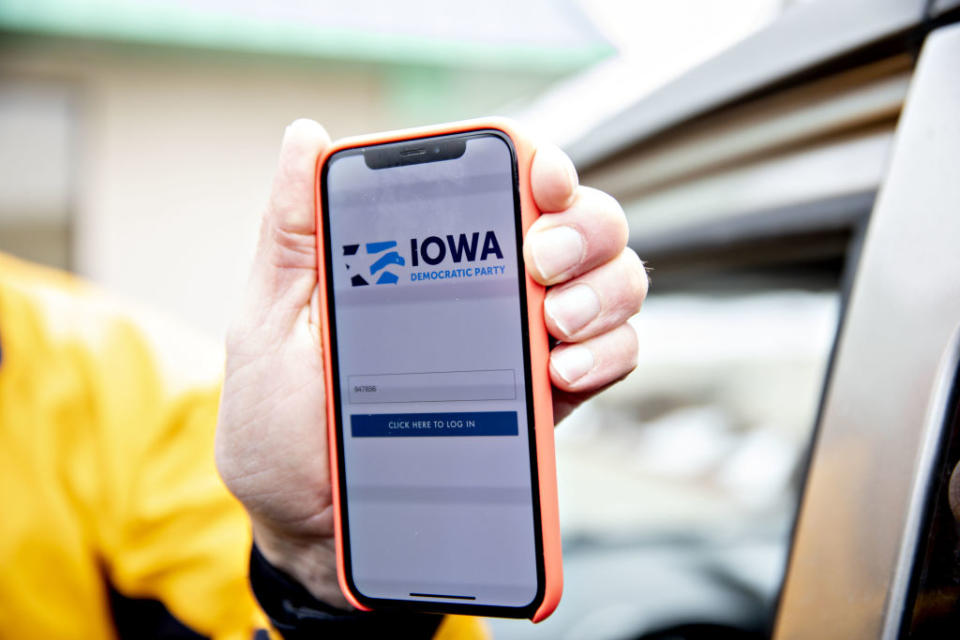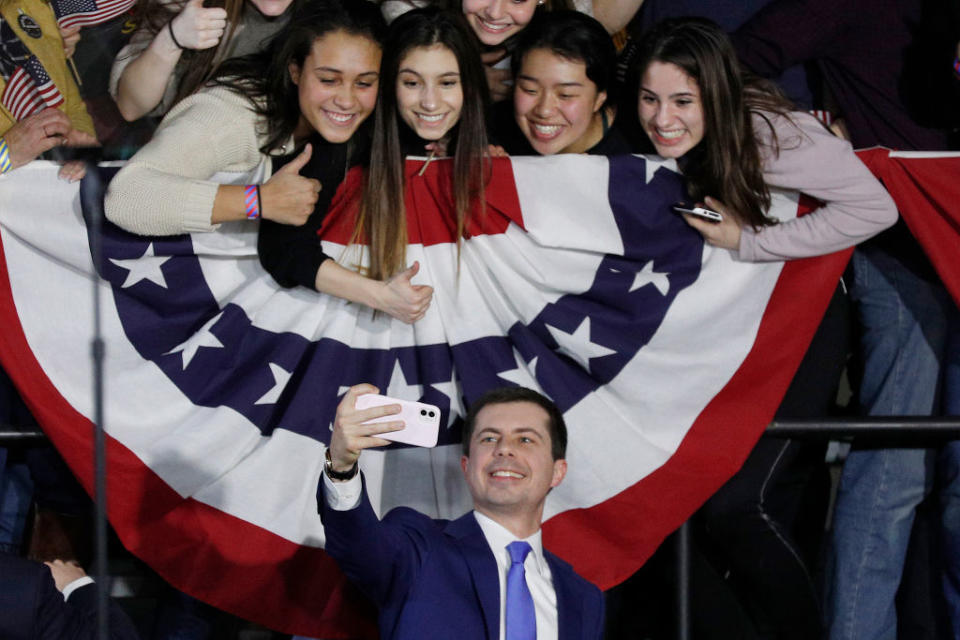The 'really worrying thing' about Iowa caucus shambles - as conspiracy theories swirl
With the world watching, the Iowa caucuses didn’t exactly go according to plan.
The famed event is the first chance Democrats in America (the state of Iowa to be specific) get to throw their weight behind a candidate vying for the party’s nomination to take on Donald Trump in this year’s presidential election.
It is the beginning of the end of the Democratic race as it works its way around the country. Iowa is the first cab off the rank and sets the tone for the drawn out political process.
This time around, it was billed as a more sophisticated process with new technology and a swanky new app being used to collect and count the votes. What could possibly go wrong?
Well, as it turns out, pretty much everything.
‘The worst case scenario happened’
A little-known startup company was picked by party leaders to develop a mobile app for reporting unofficial results, with key details such as the name of the who built the app kept confidential. While security experts tested the program, many of the people who needed to use it at 1,678 precinct locations across Iowa had little to no training.
Things got worse during the voting on Tuesday, AEST, when “coding issue” within the app muddied the results, prompting party officials to halt reporting and move to a back-up system to verify the counts.

“It looks like the worst-case scenario happened,” computer science professor Douglas W. Jones from the University of Iowa told the Associated Press.
Prof Jones, who is a voting security consultant and co-author of Broken Ballots, was among experts who had warned before the caucuses that the plan to deploy the unproven app during the high-stakes event was risky.
Some users were unable to download the app while others were ultimately met with malfunctioning messages when they did. Some reported being unable to login while others said the app kept freezing.
As a result of the technical problems, vote counts were significantly delayed and numbers were still trickling in early Wednesday afternoon, AEST.
With about 62 per cent of the vote counted, Pete Buttigieg had earned 26.9 percent of the votes counted thus far, followed by Bernie Sanders with 25.1 percent. Elizabeth Warren had earned 18.3 percent and former Vice President Joe Biden was in fourth place with 15.6 percent.

While the app was the “preferred method” for reporting results, the party did have a phone line available for caucus organisers to report results. But that quickly became overwhelmed and after long delays waiting on the line, some organisers went rogue and began announcing their results on social media.
The reporting problems were exacerbated by a new requirement that organisers from each site gather and submit information to make the process more transparent. For the first time, each precinct (1,678 in all) collected data on the number of supporters for each candidate at the beginning of the night, and then after supporters of non-viable candidates realigned to a new candidate (explained here).
Party officials defended their decision to delay the release of the results, saying they preferred to have accuracy over speed. But ironically ahead of the event they had touted the app’s automated ability to calculate delegates and report results as an improvement over the complicated math and legions of phone calls that the system has long relied upon.
Chaos gives rise to viral conspiracies
The whole fiasco could not have gone any better for online troublemakers who have spent years disseminating false or misleading conspiracy theories online that the US election is rigged or vulnerable to tampering.
Initial signs in Iowa, and crowd sizes, looked good for the hard left candidate Bernie Sanders, but the 78-year-old appears to be coming in second behind former South Bend, Indiana mayor, Pete Buttigieg.
Many on social media were quick to suggest something fishy was afoot and that Sanders was being hard done by. The hashtag #BernieWon has since been trending on Twitter.
President Donald Trump and his supporters also seized on the distrust by sending tweets with the hashtag #RiggedElection.
Meanwhile Trump’s own sons shouted “Rigged!” at an Iowa campaign event and Republican senator Lindsey Graham fuelled the fire by suggesting on social media that the caucus issues were the result of a “Bernie blowout.”

Other debunked conspiracies claimed that Bernie’s former rival, Hilary Clinton, had a hand in making the app, as well as a separate falsehood that the touted winner in Iowa, Pete Buttigieg, who unsuccessfully ran to be the Democratic party’s chairman three years ago, was also involved.
“Iowa is just the start guys,” wrote one Twitter user, who has a profile picture of himself in a Bernie Sanders T-shirt. “The Democratic Party will not allow Bernie to win.”
Ben Nimmo, a disinformation and security expert for social media analysis firm Graphika Labs, said there was no evidence of foreign accounts spreading Iowa conspiracies.
“This is Americans trolling Americans,” he told AP. “That’s the really worrying thing in 2020.”
with AP
Do you have a story tip? Email: newsroomau@yahoonews.com.
You can also follow us on Facebook, Instagram and Twitter and download the Yahoo News app from the App Store or Google Play.




